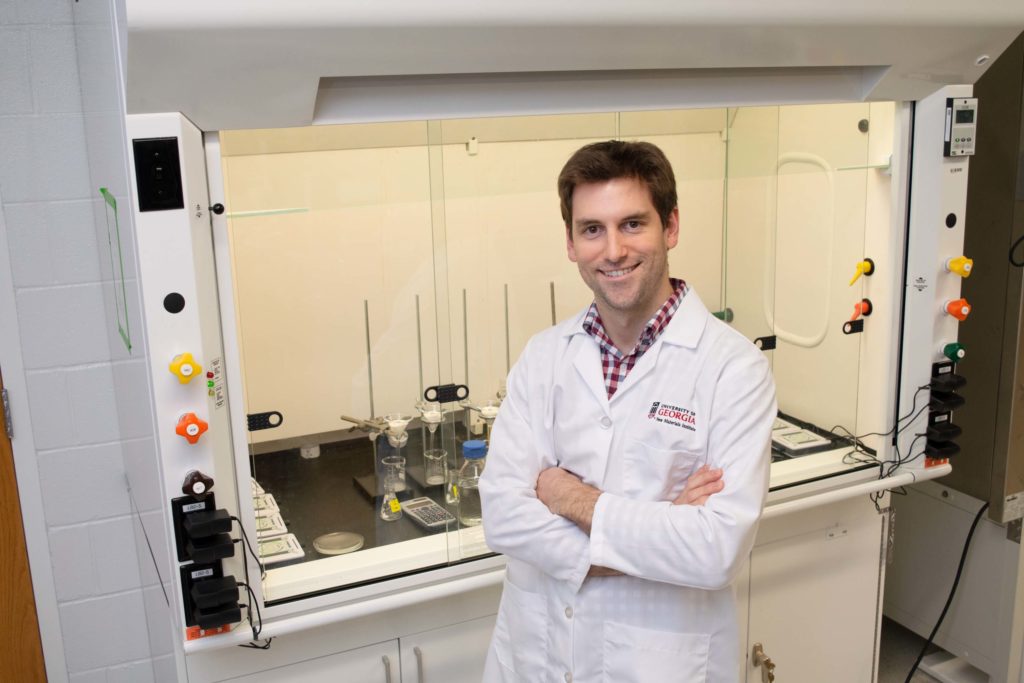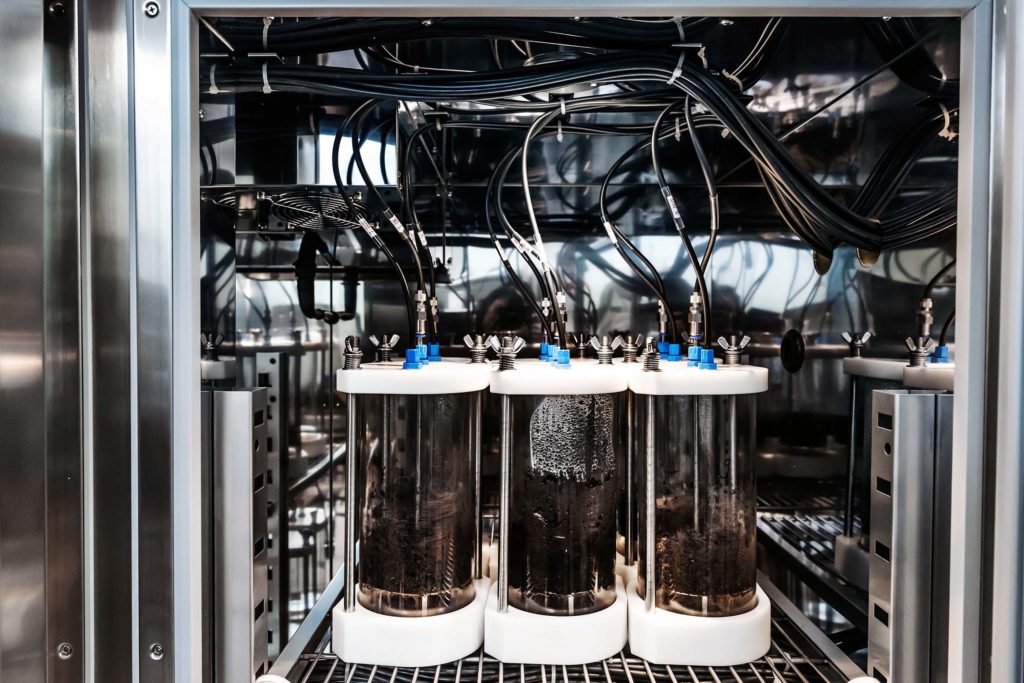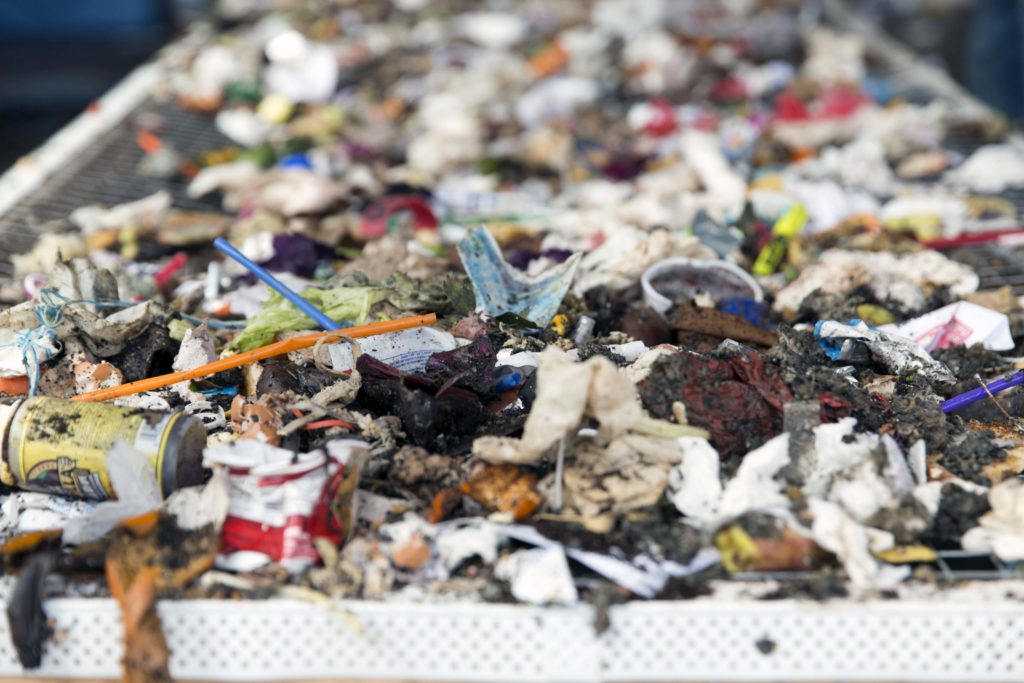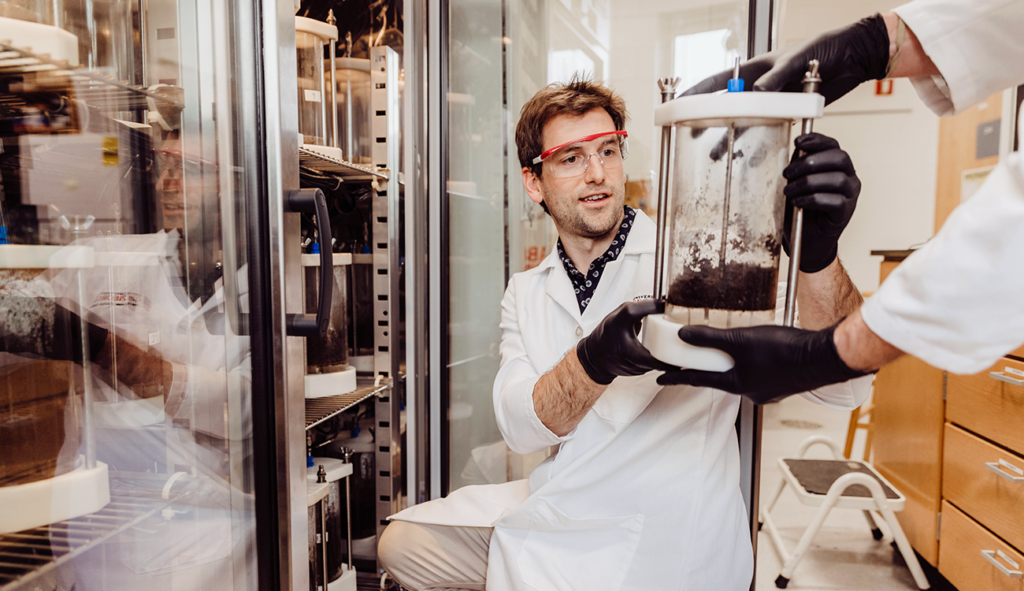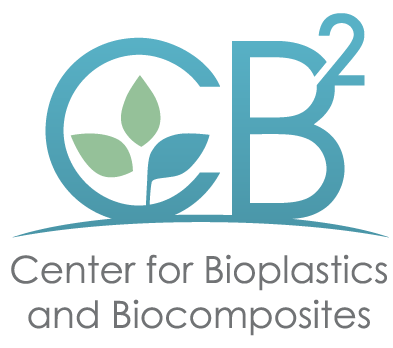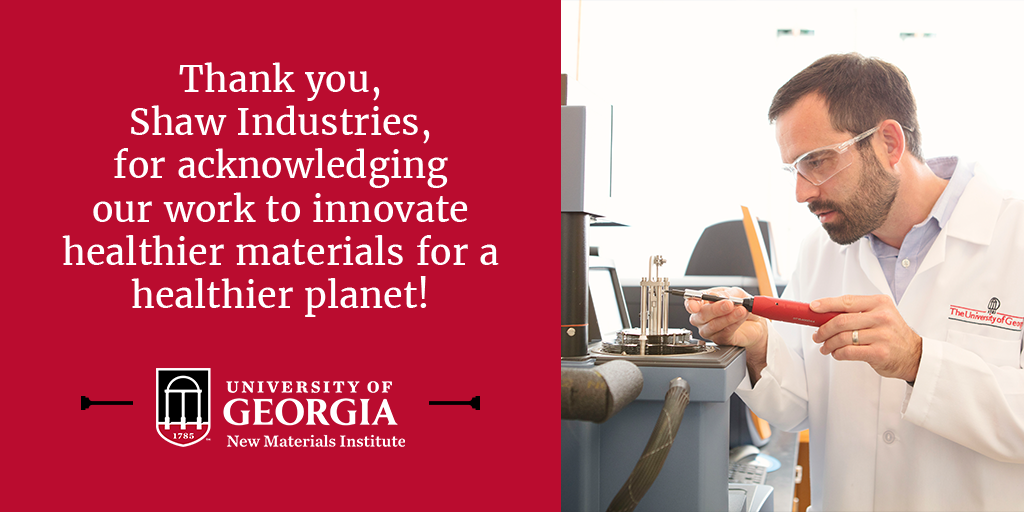UGA New Materials Institute Director Jason Locklin talks to NOVA about plastics
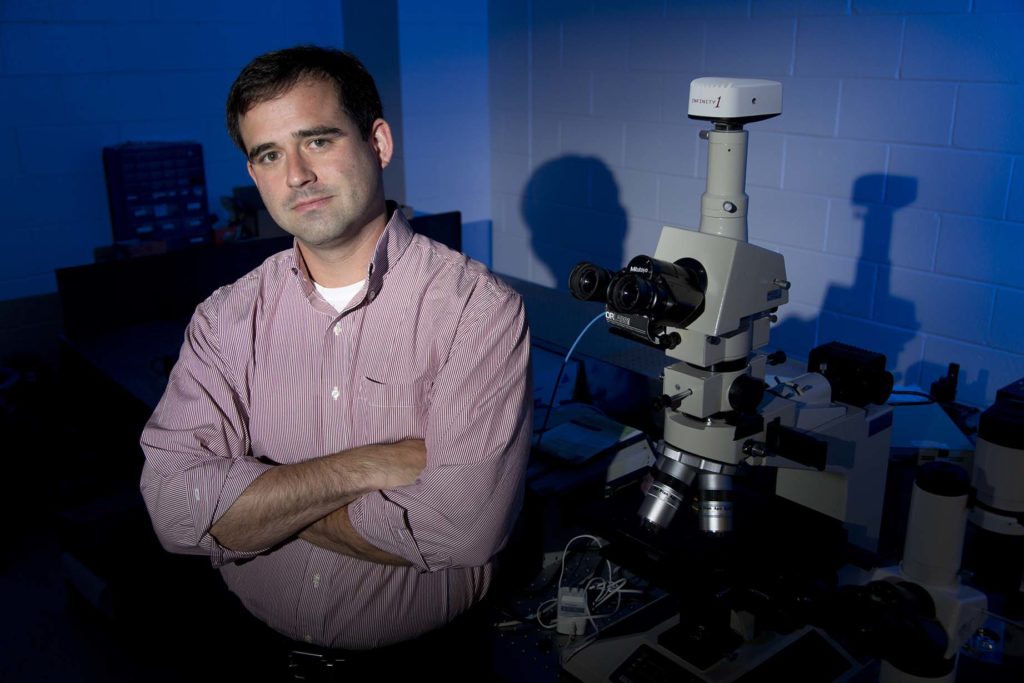
An interview with Jason Locklin, on the environmental problems associated with plastics and potential solutions for the near future, is featured in an episode of a three-part NOVA docuseries that premieres Wednesday, February 3. Locklin is director of the UGA New Materials Institute, which researches and develops compostable technologies to replace the environmentally persistent, petroleum-based plastics currently used in packaging for consumer goods and food items.
NOVA “BEYOND THE ELEMENTS,” hosted by David Pogue, examines our everyday world through the lens of chemistry. The series features three distinct, but related episodes: “REACTIONS,” “INDESTRUCTIBLE” and “LIFE,” airing on February 3 and 10 at 9 p.m. ET/8C and on February 17 at 8 p.m. ET/7C on PBS. The series is available for streaming online and via the PBS Video app.
BEYOND THE ELEMENTS brings hard-to-visualize concepts to life with the help of stunning graphics, giving viewers easy-to-understand insights into the question: “What happens when atoms stick together?”
The interview with Locklin appears in the “INDESTRUCTIBLE” episode that airs on February 10.
BEYOND THE ELEMENTS premieres Wednesdays, February 3 and 10 at 9 p.m. ET/8C and February 17 at 8 p.m. ET/7C on PBS and is available for streaming online and on the PBS video app.
NOVA “BEYOND THE ELEMENTS: REACTIONS” (February 3, 2021 at 9 p.m. ET/8C on PBS) Just about every solid, liquid, or gas in the world as we know it begins with reactions between individual atoms and molecules. Host David Pogue dives into the transformative world of chemical reactions, from the complex formula that produces cement to the single reaction that’s allowed farmers to feed a global population by the billions—a reaction that when reversed, unleashes the powerful chemistry of high explosives.
NOVA “BEYOND THE ELEMENTS: INDESTRUCTIBLE” (February 10, 2021 at 9 p.m. ET/8C on PBS) Glass so strong you can jump on it, a rubber-like coating tough enough to absorb a bomb blast, the endless varieties of plastic. Scientists and engineers have created virtually indestructible versions of common materials by manipulating the chains of interlocking atoms that give them strength—but have they made them too tough? Host David Pogue explores the fantastic chemistry behind the everyday materials we depend on, and how the quest for durability can be balanced with products’ environmental impact.
NOVA “BEYOND THE ELEMENTS: LIFE” (February 17, 2021 at 8 p.m. ET/7C on PBS) Without the chemistry of photosynthesis, ozone, and a molecule called Rubisco, none of us would be here. So how did we get so lucky? To find out, host David Pogue investigates the surprising molecules that allowed life on Earth to begin, and ultimately thrive. Along the way, he finds out what we’re all made of—literally.

